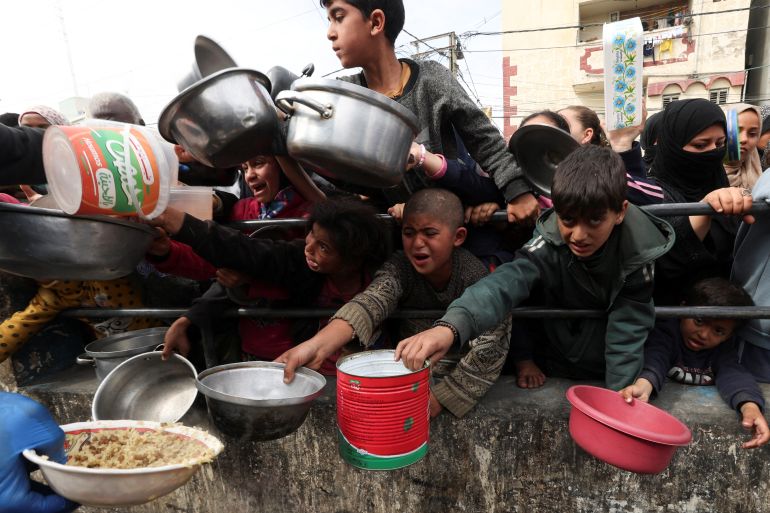World leaders’ responses to conflict imperil the rules-based world order
When the rights-based system applies only to some, double standards are reinforced, and impunity spreads.

The world is heading towards a dangerous place where selective government outrage and “a la carte” application of international law are becoming the norm. The result is already damning: a crisis of credibility and the erosion of trust in international institutions and governments, putting in peril the rules-based world order.
As the heads of Amnesty International and Center for Civilians in Conflict, two of the world’s most prominent organisations for human rights and protection of civilians, we have a simple demand for the world leaders who will be coming together on Friday for the 2024 Munich Security Conference: Protect international humanitarian and international human rights laws which are the best tools we have for protecting civilians in times of conflict, and stop creating exceptions that weaken rights protection and endanger global security and stability.
Unfortunately, in 2023, world leaders responded unevenly to the countless violations of international humanitarian and human rights law we witnessed in various conflicts across the world. They expressed outrage at the crimes committed by some warring parties while offering diplomatic cover for others. In many cases, they also turned a blind eye to the plight of civilians suffering in conflicts.
In conflict zones across the world, from Iraq to Syria, Ethiopia to Yemen, Ukraine to Sudan – just to name a few – civilians are suffering worrying levels of harm while countries who have the primary responsibility to maintain international peace and security have done too little to correct course.
Recently, we have been particularly devastated by the intensity and scale of civilian killings and destruction caused by the Israeli military campaign in Gaza. This has happened with the support of several countries despite a pattern of violations of international laws including the complete siege imposed on Gaza’s population and the use of starvation of civilians as a weapon of war.
The horrific attacks carried out by Palestinian armed groups on October 7 are inexcusable. Their perpetrators should be held accountable, and all civilian hostages taken by armed groups that day should be released immediately. But in responding to these attacks, Israel and its allies also have an obligation to abide by the rules of war and international human rights law.
Instead, countries like the US have increased the transfer of weapons to Israel even though they could be used to cause harm to civilians in violation of the Biden administration’s own Conventional Arms Transfer policy as well as numerous provisions of US law.
Similarly, several Western countries have suspended funding to the United Nations Relief and Works Agency for Palestine Refugees in the Near East (UNRWA) over allegations made by Israel and without any independent investigation, collectively punishing the entire civilian population of Gaza, which is in dire need of life-saving assistance.
It seems in Gaza and other conflict zones that world leaders are picking and choosing which civilians to protect and which civilians to abandon to their fate, based on politics and existing alliances. This is unacceptable.
Global leaders must urgently review their conduct because they are failing to uphold basic human values – such as human rights, liberty and equality for all. When world leaders act against the very values they claim to embody and defend, the citizens of the world begin to question the integrity of the international legal system. When the rights-based system applies only to some, double standards are reinforced, and impunity spreads.
We urge the world leaders gathering in Munich to not only reflect upon the current and future security challenges facing their countries and the global community at large but also ponder over their roles in addressing them. We urge them to acknowledge the selective application of international law and the undermining of international institutions and legal frameworks as a top threat to global security. We call on them to commit to upholding international law in a just and equitable manner that respects the inherent dignity and human rights of all people without discrimination.
The views expressed in this article are the authors’ own and do not necessarily reflect Al Jazeera’s editorial stance.